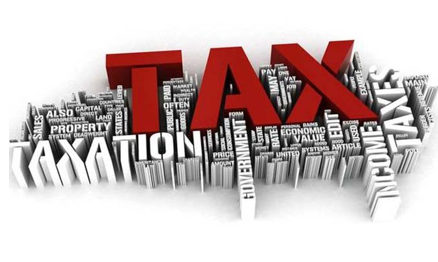
Experts call for progressive tax reforms to integrate informal sectors
Moaaz Manzoor
Pakistan urgently needs progressive tax reforms to integrate the informal economy and address structural weaknesses in governance, with actionable solutions ranging from better data utilization to targeted sectoral reforms.

Speaking to WealthPK, Muhammad Ishaque Khan, Group Internal Auditor at the Standard Chartered Bank, emphasized that sustainable economic recovery relied on structural reforms that improved tax collection, formalized the economy, and strengthened the governance frameworks. He highlighted that a transparent and incentivized tax system would encourage voluntary compliance among individuals and businesses. While he acknowledged the potential guidance the International Monetary Fund (IMF) could provide, he stressed that the success of these reforms ultimately depended on effective implementation to ensure long-term fiscal stability and economic growth.
He also highlighted the role of a conducive investment climate in fostering private-sector growth. Increased foreign direct investment (FDI) and domestic investment could drive productivity growth and spur economic development. However, he cautioned that attracting long-term investments required consistent economic policies and political stability. “Economic uncertainty and policy inconsistency are among the biggest barriers to the private-sector confidence,” he added. Similarly, Mutaher Khan, co-founder of Data Darbar, highlighted lack of political will as a key hurdle to reforming the tax system.
He pointed out that while the challenges in tax administration were well-recognized, the government often resorted to short-term solutions such as withholding taxes. “These measures discourage economic transactions and create disincentives for formalization,” he said. Khan emphasized the potential of using the existing organizational data to identify and act against tax-evasion. He cited the FBR’s Integrated Risk Information System (IRIS) as an underutilized resource that could estimate tax liabilities and send targeted notices based on observable activities, such as frequent business-class travel.
Khan stressed the importance of tailored reforms, mentioning major sectors like agriculture, retail, and real estate — significant contributors to tax-evasion. Real estate is one of the largest tax-evaders, yet the government has not prioritized actionable reforms, he observed. He also called for stronger collaboration among the institutions, such as the Securities and Exchange Commission of Pakistan (SECP) and banks, to enhance data sharing and enforcement. At the provincial level, Khan noted that the revenue boards failed to capitalize on their access to the substantial market data, resulting in negligible tax collection.
He argued that market sizing and targeted enforcement could significantly improve revenue outcomes. Both experts emphasized that the reform efforts must address immediate fiscal concerns and pave the way for long-term economic stability. Progressive tax reforms, which distribute the tax burden equitably while minimizing economic distortions, are essential for integrating the informal economy and promoting sustainable growth. The integration of Pakistan’s informal economy through progressive tax reforms is a fiscal necessity and a pathway to economic stability.
As highlighted by the experts, leveraging advanced data systems, fostering institutional collaboration, and implementing targeted reforms in high-evasion sectors can enhance tax compliance and broaden the revenue base. Simultaneously, structural reforms, consistent policies, and a stable political environment are prerequisites for fostering private sector growth and long-term investment. These measures, grounded in sound economic principles, can significantly reduce fiscal deficits while promoting fairness and growth in the economy.
Credit: INP-WealthPk
Comment / Reply From
Popular Posts
Newsletter
Subscribe to our mailing list to get the new updates!



